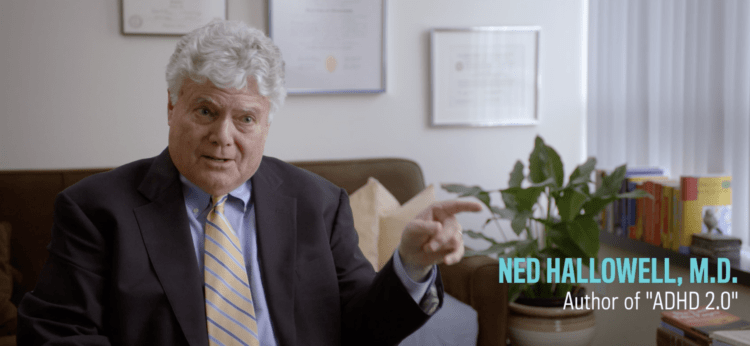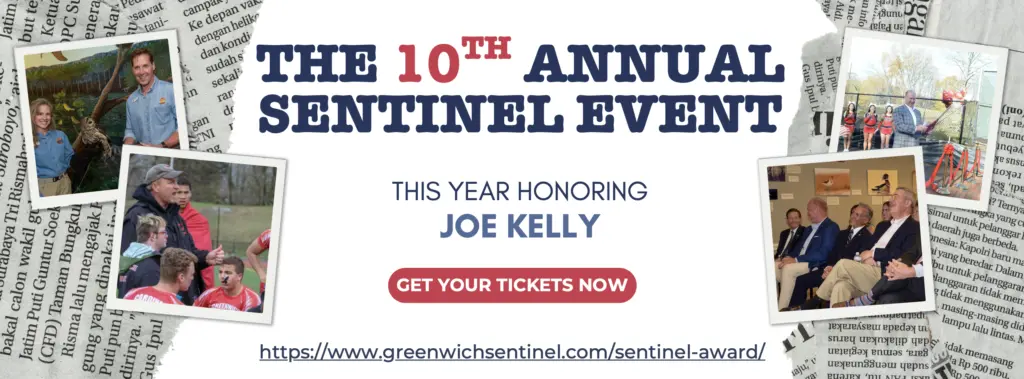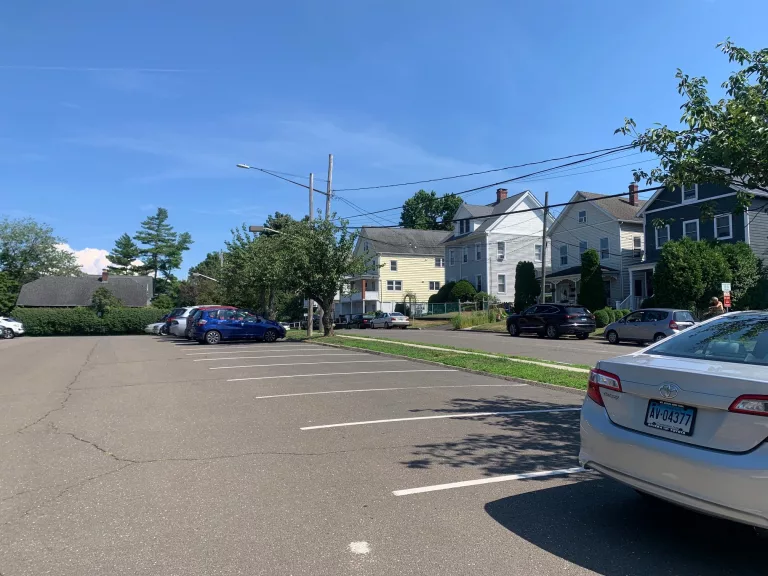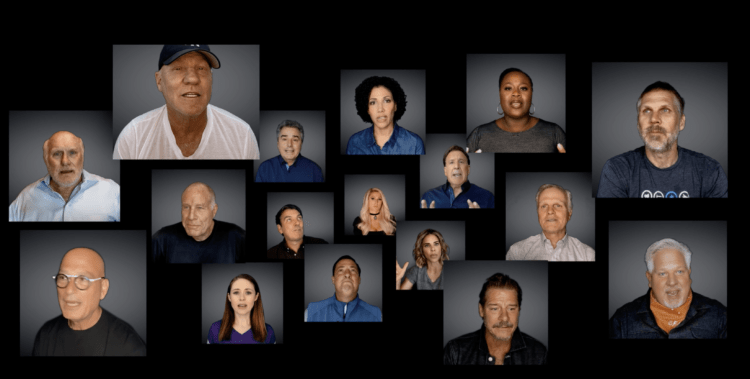
By Anne W. Semmes
Nancy Armstrong has raised three children with her husband Tim Armstrong in Riverside. They’ve been blessed as a family in many ways but have had challenges, with their oldest son, struggling in school with ADHD, that attention deficit/hyperactivity disorder. “We worried a lot about my son,” she tells, “Because it’s a herculean struggle that requires an insane amount of patience. Every single day is Groundhog Day. Every day goes badly. Even if you are employing all the tools in the toolbox, it’s still a struggle.”
Mother Armstrong recalls that day her son, age eight, was diagnosed with ADHD at the Greenwich diagnostician’s office. “He’s rattling off the symptoms of ADHD. My husband is sitting in the chair…slinking down and his hand is going up. He says, ‘I have all those symptoms.” ADHD is hereditary. And then the Armstrong’s’ two younger daughters reach puberty with the older daughter showing inattentiveness. “No hyperactivity, no impulsivity, she just suffers quietly in the back of the classroom.” Both girls test positive for ADHD.
Then came that game changing introduction at a dinner party to the works of psychiatrist Dr. Edward Hallowell and his strength-based treatment model for ADHD as described in his award-winning book “Driven to Distraction.” Armstrong is quick to meet Hallowell. “We started having this dialogue about there needs to be a film, because you can’t hand a teacher a 500-page book and say, ‘This is what you need to understand about my child.’ It’s not going to happen. You could say, “This film is required viewing for all teachers. It’s 90 minutes and we’re all going to watch it together. Then we’re going to have a conversation.”
The documentary film “The Disruptors,” with its executive producer Nancy Armstrong, tells that ADHD game changing story. Its available to view on YouTube, Amazon, Google Play, and iTunes. It features five families chosen from across the country dealing with their ADHD children, on a learning curve of how their kids have “got to navigate in this world,” how their struggles can be turned into strengths. With proof positive celebrities introduced such as astronaut Scott Kelly, Tom Scott, founder of The Nantucket Project, Paris Hilton, former professional football player Terry Bradshaw, and yes, Tim Armstrong, former CEO of AOL, now founder/CEO of high-tech company Flowcode.
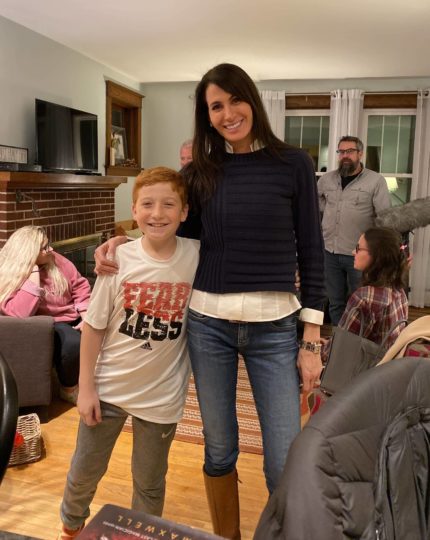
But give the Armstrong’s son credit “My son,” tells his mother, “says he inspired the film, which is true. Because I knew that there were boys like him all over the country, and girls that were being tortured and bullied. Kids with ADHD are bullied two times more than neurotypical kids.”
The film features a number of ADHD experts addressing its symptoms: “You get distracted,” “Your mind wanders,” “You’re losing things,” “Impulsivity,” “Facing deadlines – they’re always running behind.” “Exquisitely sensitive to rejection,” said Dr. Hallowell. And there are visuals of how the brain is subtly wired in those diagnosed with ADHD.
So, Nancy Armstrong, just how informed are our schools with effectively dealing with kids with ADHD? “I have notified the Greenwich Board of Education of at least two free screenings of the film.” But she has yet to see the film recommended to parents or teachers. “I don’t think the school system understands how badly this [film] is needed. I don’t think they understand where they’re going wrong in some cases and in the way that they handle kids with ADHD.” She tells of a friend with a child in public school calling her and saying, “My daughter is being really mistreated by the teachers, and they are calling her disruptive of all the things in the world.” Her response, “Do they know that I made a film about them?
“This is a student who felt very demoralized and upon seeing the film had a completely different vision of herself because she said, ‘Oh, this is a series of challenges, but it is also a series of some pretty impressive strengths. If I can learn to leverage and activate those strengths, I can be like Paris Hilton, will.i.am, David Neeleman.’ All these people with ADHD were also called disruptive in their classrooms and suffered going through the K-12 system because it was then and remains a deeply misunderstood condition.”
Armstrong’s film also addresses helpful medication for kids with ADHD. “I remember when my son was eight years old,” she tells, “He used to run out of school every day crying because he would get a warning in school. He was a sweet boy, so he didn’t want to get a warning, and felt terrible about himself getting a warning every day. The first day of trying the medication, he came running out and smiling for the first time and said, ‘I know how to behave now. I’m not going to get a warning anymore.’ It was just heartbreaking.
“Basically, what people with ADHD have is low dopamine or low norepinephrine. What the medications do is give you a normal level. That’s why without the requisite amount of dopamine in your brain, your reward system doesn’t work correctly…It’s a very hard decision to give medication to your child. If the alternative is they’re falling apart, then you have to look at the science and you have to say, “Let’s try it and see what happens.”
Since offering her film, “The Disruptors” online, Armstrong has been receiving “letters from all over the world. I’m doing all my own marketing and PR for the film. This is one place in which Facebook has actually been helpful because I can go directly to those groups where everyone goes for support and feedback and let them know about the film. The letters that I’ve gotten back are incredible.
People will go to the website and send me a note, ‘Thank you so much. I finally feel seen. I’m going to have my whole family watch this, my daughter, my son, my husband. I have been struggling my whole life. I’ve been so mistreated. This film finally calls it out.’”
So, how old are Armstrong’s children now? “My son is turning 21 next month,” and her girls are 19 and 17. So, she points to her children’s generation as finally becoming properly educated about ADHD. “I think it’s Gen Z, because my generation doesn’t get it, and the millennials definitely don’t get it. They probably don’t have children yet. I think that’s a very interesting point. I could never understand why no one made this film.”
Armstrong had tried with her “great” agent to place the film on Netflix and Apple Plus and Disney, “and all the streaming platforms – and they passed.” Perhaps, she adds, “PBS might take it.” Meanwhile, she’ll continue to be the film’s distributor.
“The thing that is most meaningful to me,” she says, “is that I struck the nerve I wanted to strike in terms of the need to reframe this [ADHD], the need to wake people up, but also the need for parents and children to be seen and to say to them, ‘You’re not alone. This is universal.’”
